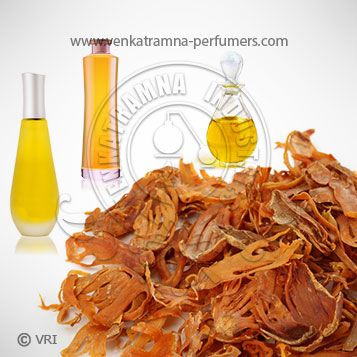
| Botanical Name | Myristica fragrans |
| Common Name | May Chang |
| Country of Origin | Spain |
| Solubility | Soluble in alcohol and oils. Insoluble in water. |
| Specific Gravity | 0.890 – 0.915 @ 20°C |
| Optical Rotation | +0.0 – +25 @ 20°C |
| Refrective Index | 1.475 – 1.485 @ 20°C |
| PlantPart | Husk |
| Bland With | Bay Leaf, Orange Sweet, Peru Balsam, Geranium, Rosemary, Lime, Clary Sage, Petitgrain, Mandarin, Coriander. |
| CAS No | 8007-12-3 |
| Flash Point | 82 °C |
| Extraction Method | Steam Distilled |
Mace Oil comes from Mace tree that yields nutmeg fruit which is pendulous in shape and similar in presentation to a peach. The oil is steam distilled from fruit part of the tree and has analgesic, anti-emetic, antioxidant, antiseptic, antispasmodic and other medicinal and therapeutic properties. Myristica fragrans is commonly named nutmeg or mace. It is an aromatic evergreen tree with spreading branches and a yellow fleshy fruit similar in appearance to an apricot or peach. The nutmeg fruit is pendulous and similar in presentation to a peach. When fully mature, it splits in two, exposing a crimson-colored aril. This is the mace which surrounds the nutmeg pit. Mace is a vibrant red-colored seed husk covering (aril).
Mace Essential Oil has a history of medical use in combination with nutmeg. It was used to combat digestive issues and fevers. Myristica fragrans is a small evergreen tree, usually 5–13 m (16–43 ft) tall, but occasionally reaching 20 m (66 ft). The alternately arranged leaves are dark green, 5–15 cm (2.0–5.9 in) long by 2–7 cm (0.8–2.8 in) wide with petioles about 1 cm (0.4 in) long.
Color : Pale yellow to brownish yellow liquid with Characteristic aroma,
Aroma : Medium and spicy scent
75 % Citral, chemical limonene.
Mace Essential Oil is used as an analgesic, antioxidant, anti-emetic, antiseptic, antispasmodic, aphrodisiac, carminative, larvicidal, emmenagogue and as stimulant. The essential oil derived from Mace is the most efficacious. The oil is a potent brain booster. It increases concentration and relieves stress. Mace is an excellent liver tonic. It dissolves kidney stones and prevents infection. The herb is also beneficial for the heart as it stimulates blood circulation. Mace’s anti-inflammatory properties are used to treat joint and muscle aches. The seed of nutmeg is rich in essential oils. It is a bitter, astringent, spicy herb that acts as a warming, digestive tonic. It controls vomiting and relaxes spasms. When applied externally, it has an antiinflammatory effect. Nutmeg is also said to have stimulant, carminative and aphrodisiac properties. The seed is taken internally in the treatment of diarrhoea, dysentery, vomiting, abdominal distension, indigestion and colic. Externally, the seed is used to treat toothache, rheumatic and abdominal pains (including labour pains). Some caution is advised - taken in excess the seed can cause severe headache, nausea, dizziness and delirium. The seed is used in Ayurveda to treat poor digestion, insomnia, urinary incontinence and premature ejaculation.